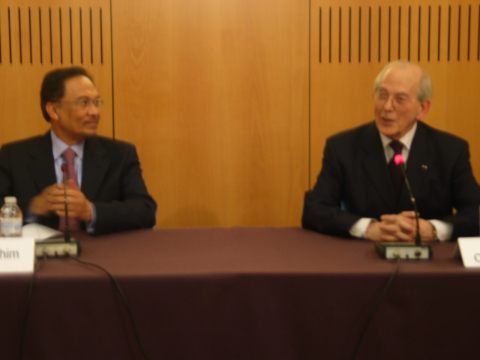
Practical information
Minister of culture in 1983, minister of agriculture in 1984, minister of education in 1986, vice Prime Minister in 1993 (cumulated with the status of Minister for Finance), Anwar Ibrahim leaded the ministry for finances at the time of the Asian economic crisis of 1997. Partisan to follow the recommendations of the IMF, he openly criticized the nepotism and the corruption of the government. Consequently, it was excluded from the government and from the dominant party. In August 2008, Anwar Ibrahim became again MP. The coalition of the opposition parties, of which he is the leader today, holds more than one third of the seats at the Parliament.
Other events

EV Supply Chains for Japan and Europe: Strengthening Economic Security
Economic security aims to ensure the resilience of supply chains for key industries: the case of electric vehicle production in Japan and Europe will be discussed.





